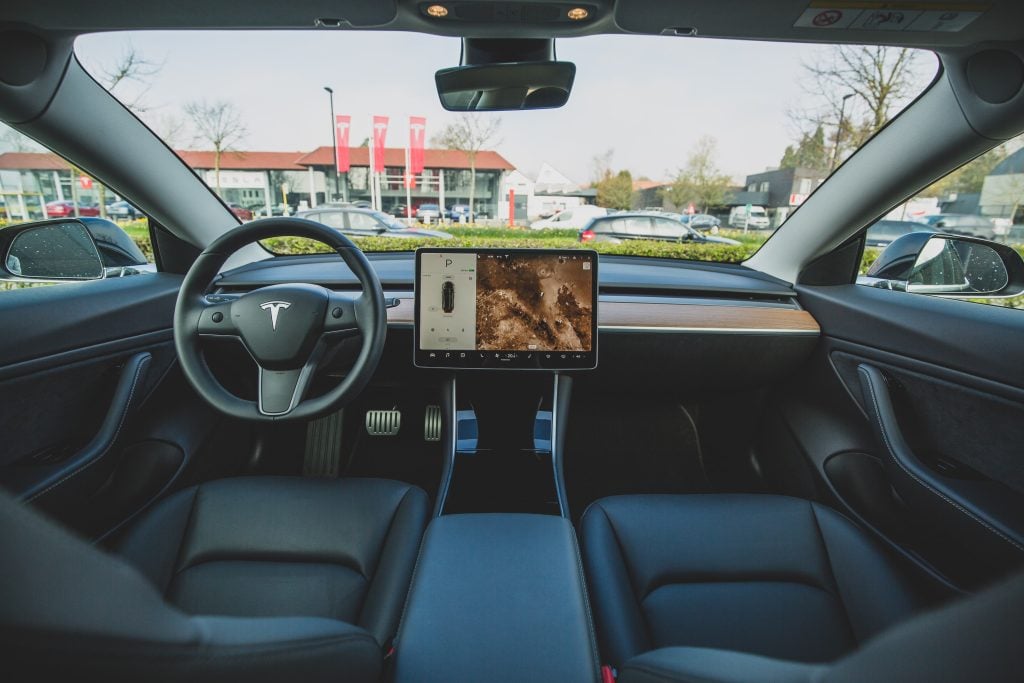Ride into the Future: Bulgarian Startup Teams Up with KIA to Replace Plastic in Next-Gen Automotive Experience
Only have 1 minute? Here are 3 key takeaways from the piece? • Biomyc, a […]
Only have 1 minute? Here are 3 key takeaways from the piece? • Biomyc, a […]
• Ampeco, the Bulgarian startup offering EV charging and energy management software, raised a […]
Next on The Recursive podcast, we tell the story of a Bulgarian entrepreneur engineering the […]
• Cluj-based OxidOS has raised €1.2M in a seed round led by Romanian VC […]
In 2016, Charis Arvanitis, founder and CEO of Spotawheel, wanted to buy a second-hand car […]
Croatian electric vehicle manufacturer Rimac Group raised €500M in a Series D round led by […]
If you are already day-dreaming of your next sunny vacation on a Greek island, it […]
Greek startup Spyros Panopoulos (SP) Automotive digitally unveiled the world’s first so-called ultra-car named Chaos. […]
Yesterday was a historic day for the Croatian electric hypercar manufacturer , Rimac Automobili. They […]
Porsche Engineering, the technology service provider and a wholly-owned subsidiary of Porsche, has chosen Timisoara […]
In our context, smart cars are the new type of automated vehicles that have integrated AI systems at their core. That said, the term could also refer to the Smart automotive brand (known for the Smart Fortwo vehicle) – a joint venture between Mercedes-Benz and Zhejiang Geely Holding Group.
The initial design behind smart cars is the comfort that the driver could have with the intelligent car pushing many mundane elements of driving in the past. The main goal is better driver experience and safety.
Most of the current smart car models are only designed for city driving and the released models are usually voiturettes and micro cars.
The smart car price in 2022 may surpass $100, 000 for some Tesla models, although DeepRoute’s autonomous vehicles are dubbed to cost just $10, 000.
Given the integration of AI in daily use and machines such as fridges, TVs and even interactive homes is upscaling, possibly the smart vehicles could also become a commodity that is going to become a frequent sight.
The speed can vary depending on the model. For example, Tesla Model S Plaid reaches a top speed of 348 km/ h (216 mph) whereas Volvo Cars’ XC90 has a limit at 180 km/ h (112 mph).
Interestingly, most of the engines usually run on gas or electricity, as one of the key features of the manufactures is to be eco-friendly.
Although the market of this type of cars is still shaping due to the high cost/low velocity and energy drain from the system, electric smart cars are becoming more and more popular in the EU.
One of the many features that the smart car has to offer is memorisable map which is a tool that just like your smartphone creates a virtual map of places that are often visited, listed or even marked as favorite.
More advanced features include autopilot driving, completely turned green energy and an intelligent AI that drives, communicates and as the main goal of the designers is, to improve the driving experience.
There are some opponents to the full self-driving type of vehicles because of the potential malfunctions and the not-so well established support if an accident occurs.
Some of the testers are pointing out that the smart cars are still designed flawed as it comes to overall efficiency. Other concerns that engineers are trying to solve are the non rechargeable batteries that are found very hard to recycle as well.

As it is hard to integrate the modern type of cars in the daily lives of both Americans and Europeans, the Balkans are no different.
The region is usually having troubles with transportation, infrastructure and sustainability strategies applied to cities but that doesn’t stop European investors to develop the region like the case of Next.e.Go building factories in Tetovo, North Macedonia and Lovech, Bulgaria as well as EnerMech in Greece.
It’s important we bring awareness to the topic so more investors join and to uncover the challenges that stand in the way to the mass adoption of smart vehicles.
Our main expert covering the development of smart cars in Southeast Europe is Bojan Stojkovski.
On the Recursive you can find the up-to-date news about technological innovation related to smart cars. From self-driving AI software to manufacturing and hardware as well as the smart city infrastructure needed to support the intelligent cars.
Yes. Subscribe to The Recursive newsletter to get the latest smart car news brought straight to your mailbox.